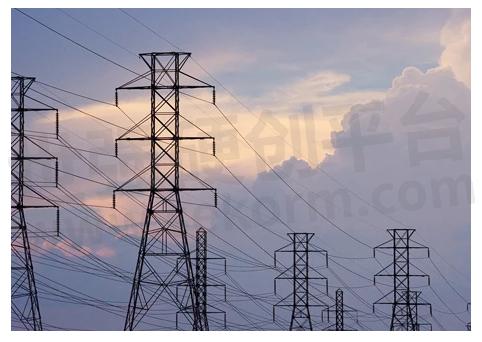The Electric Power Series Represents A Significant Step towards A Sustainable and Clean Energy Future

In recent years, the world has witnessed a growing concern about the future of our planet. The increasing threat of climate change and the depletion of natural resources have pushed us to explore alternative sources of energy. In this regard, the electric power series has emerged as a promising solution for a sustainable future.
The electric power series refers to a range of technologies that generate electricity using renewable sources such as solar, wind, hydropower, and geothermal energy. These technologies are considered sustainable because they have minimal impact on the environment and can be replenished naturally. Moreover, they do not contribute to greenhouse gas emissions, which are the leading cause of global warming.
Solar power is one of the most popular technologies in the electric power series. It harnesses energy from the sun using photovoltaic (PV) cells or solar thermal collectors. PV cells convert sunlight directly into electricity, while solar thermal collectors use the sun’s heat to generate steam, which drives turbines to produce electricity. The widespread adoption of solar power has been facilitated by the decreasing cost of PV cells and the increasing efficiency of solar panels.

Another key technology in the electric power series is wind power. Wind turbines convert the kinetic energy of the wind into mechanical power, which is then used to generate electricity. As wind is a renewable resource that is available in abundance, wind power has gained significant traction in many parts of the world. Offshore wind farms, in particular, have the potential to generate large amounts of electricity and can be located near densely populated areas, reducing transmission losses.
The oldest and most widely used renewable energy source is also part of the electric power series. It harnesses the energy of flowing water to generate electricity. This can be achieved through dams or run-of-the-river systems. Hydropower plants are not only a source of clean energy but also serve other purposes such as water supply, flood control, and irrigation. However, the construction of large dams can have negative environmental and social impacts, leading to the exploration of smaller-scale hydropower projects.
Geothermal power is another technology in the electric power series that utilizes the Earth’s heat to generate electricity. It involves drilling deep into the Earth’s crust to tap into hot water or steam reservoirs. Geothermal power plants are highly reliable and can provide a constant source of energy, regardless of weather conditions. However, they are limited to specific geographic regions with accessible geothermal resources.
The electric power series offers numerous advantages over traditional fossil fuel-based power generation. Firstly, it helps reduce greenhouse gas emissions, mitigating the adverse effects of climate change. Secondly, it promotes energy independence by diversifying the sources of electricity production. Thirdly, it stimulates economic growth by creating jobs in the renewable energy sector. Finally, it provides a long-term solution to the problem of finite fossil fuel reserves.
Despite these benefits, the electric power series still faces challenges that need to be addressed. One of the main obstacles is the intermittency of renewable energy sources, such as solar and wind power. This means that electricity generation is dependent on weather conditions and may not be available at all times. To overcome this challenge, energy storage technologies, such as batteries and pumped hydro storage, are being developed to store excess electricity and release it when needed.

Another challenge is the high upfront costs associated with the installation of renewable energy systems. However, the declining costs of solar panels, wind turbines, and other components, coupled with government incentives and subsidies, are making renewable energy more affordable and accessible. Furthermore, advancements in technology are continuously improving the efficiency and performance of renewable energy systems, making them more cost-effective in the long run.
The electric power series represents a significant step towards a sustainable and clean energy future. By harnessing the power of renewable sources such as solar, wind, hydropower, and geothermal energy, we can reduce our reliance on fossil fuels and mitigate the impacts of climate change. However, further advancements in technology, energy storage, and policy support are required to overcome the challenges and achieve widespread adoption of the electric power series. With collective efforts, we can pave the way for a greener and brighter tomorrow.
- +1 Like
- Add to Favorites
Recommend
- The Electric Power Series: Empowering the Future with Electricity
- The Electric Power Series: Illuminating the World
- The Electric Power Series: Revolutionizing the Energy Landscape
- Exploring the Electric Power Series: A Journey into the World of Electricity
- The Generation, Transmission, Storage and Consumption of Electric Power Series
- Exploring the Electric Power Series: Uncovering the Wonders of Electricity
- The Electric Power Series: Illuminating the World with Energy
- Exploring the Wonders of the Electric Power Series: A Journey into Modern Energy Technologies
This document is provided by Sekorm Platform for VIP exclusive service. The copyright is owned by Sekorm. Without authorization, any medias, websites or individual are not allowed to reprint. When authorizing the reprint, the link of www.sekorm.com must be indicated.





































































































































































































































































































































































































































































































































































































































































































































































































































